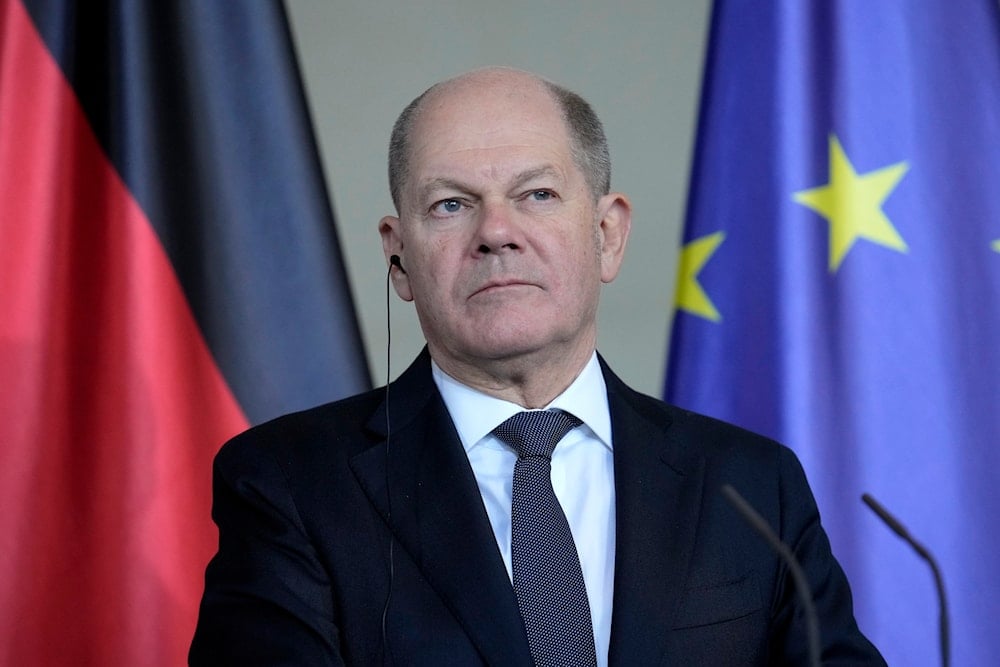Germany to hold February elections following Bundestag dissolution
German President Frank-Walter Steinmeier dissolved parliament and scheduled new elections for February 23 following the collapse of Chancellor Olaf Scholz’s coalition.
-

German Chancellor Olaf Scholz attends a joint press conference with Estonian Prime Minister Kristen Michal in the chancellory in Berlin, on December 20, 2024. (AP)
German President Frank-Walter Steinmeier officially dissolved parliament and called for a snap election on February 23, aligning with the timetable proposed by Chancellor Olaf Scholz.
Scholz, head of the center-left Social Democrats, ended his coalition with the Greens and Free Democrats last month after firing FDP Finance Minister Christian Lindner over a disagreement on government borrowing. The unexpected move removed the chancellor's majority in the Bundestag, setting the stage for an early national election, seven months before the end of his four-year term.
In a televised statement, Steinmeier said on Friday that “especially in difficult times like now, an effective government and reliable majorities in parliament are needed for stability,” cautioning that the next government will have “major challenges” to deal with.
He highlighted the need to address Germany's persistent economic weakness, war in Ukraine, turmoil in the Middle East, the growing impact of climate change, and the management of migration flows.
Steinmeier, whose role as head of state is largely ceremonial, did not directly mention Donald Trump, but the imminent return of the US president-elect to the White House remains another source of uncertainty for Europe.
Conservative opposition in the lead
With less than two months until the election, the main opposition conservatives led by Friedrich Merz are ahead in the polls. Scholz’s SPD is in third place, behind the AfD, with the Greens in fourth.
Merz’s center-right CDU/CSU bloc holds around 31% support, according to the latest Bloomberg polling average, while the AfD is at approximately 19% and the SPD at 16%.
The Greens have around 13%, while Lindner’s FDP, with 4%, risks failing to meet the 5% threshold needed to enter parliament.
Lars Klingbeil, an SPD co-leader, expressed confidence that the party will begin closing the gap with the conservatives in January and believes the SPD can once again emerge as the winner.
The SPD made a strong late surge in the 2021 election, securing nearly 26% to claim first place, surpassing the CDU/CSU, which received 24%.
“More and more citizens will ask themselves: Do we want Olaf Scholz as chancellor or Friedrich Merz?” Klingbeil was quoted as saying in an interview with Tagesspiegel newspaper published on Thursday.
Although Steinmeier has formally dissolved the Bundestag, its term will only conclude with the constitution of the next parliament. Lawmakers will continue to meet and carry out parliamentary duties, with two sessions scheduled before the election.

 3 Min Read
3 Min Read








